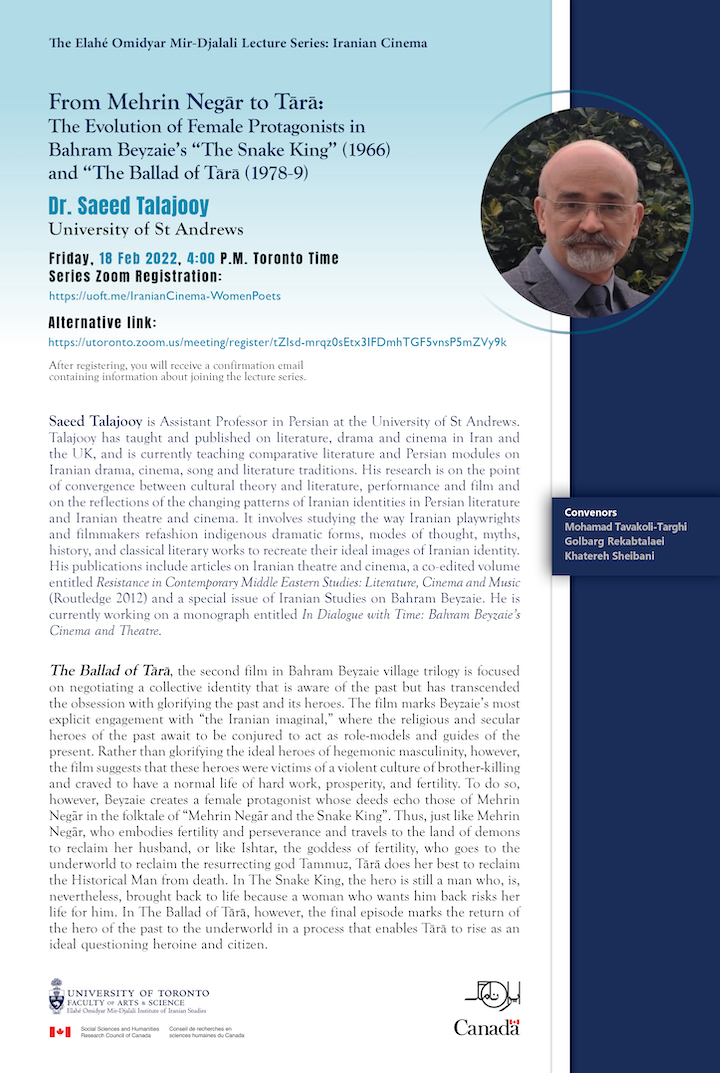

Saeed Talajooy is Assistant Professor in Persian at the University of St Andrews. Talajooy has taught and published on literature, drama and cinema in Iran and the Ok. and is currently teaching comparative literature and Persian modules on Iranian drama cinema, son and literature traditions. His research is on the point of convergence between cultural theory and literature, performance and film and on the reflections of the changing patterns of Iranian identities in Persian literature and Iranian theatre and cinema. It involves studying the way Iranian playwrights and filmmakers refashion indigenous dramatic forms, modes of thought, myths, history, and classical literary works to recreate their ideal images of Iranian identity. His publications include articles on Iranian theatre and cinema, a co-edited volume entitled Resistance in Contemporary Middle Eastern Studies: Literature, Cinema and Music (Routledge 2012) and a special issue of Iranian Studies on Bahram Beyzaie. He is currently working on a monograph entitled In Dialogue with Time: Bahram Beyzaie’s Cinema and Theatre.
The Ballad of Tara, the second film in Bahram Beyzaie village trilogy is focused on negotiating a collective identity that is aware of the past but has transcended the obsession with glorifying the past and its heroes. The film marks Beyzaie’s most explicit engagement with “the Iranian imaginal. ” where the religious and secular heroes of the past await to be conjured to act as role-models and guides of the present. Rather than glorifying the ideal heroes of hegemonic masculinity, however, the film suggests that these heroes were victims of a violent culture of brother-killing and craved to have a normal life of hard work, prosperity, and fertility. To do so, however, Beyzaie creates a female protagonist whose deeds echo those of Mehrin Negar in the folktale of “Mehrin Negar and the Snake King”. Thus, just like Mehrin Negar, who embodies fertility and perseverance and travels to the land of demons to reclaim her husband, or like Ishtar, the goddess of fertility, who goes to the underworld to reclaim the resurrecting god Tammuz, Tara does her best to reclaim the Historical Man from death. In The Snake King, the hero is still a man who, is, nevertheless brought back to life because a woman who wants him back risks her life for him. In The Ballad of Tara, however, the final episode marks the return of the hero of the past to the underworld in a process that enables Tarà to rise as an ideal questioning heroine and citizen